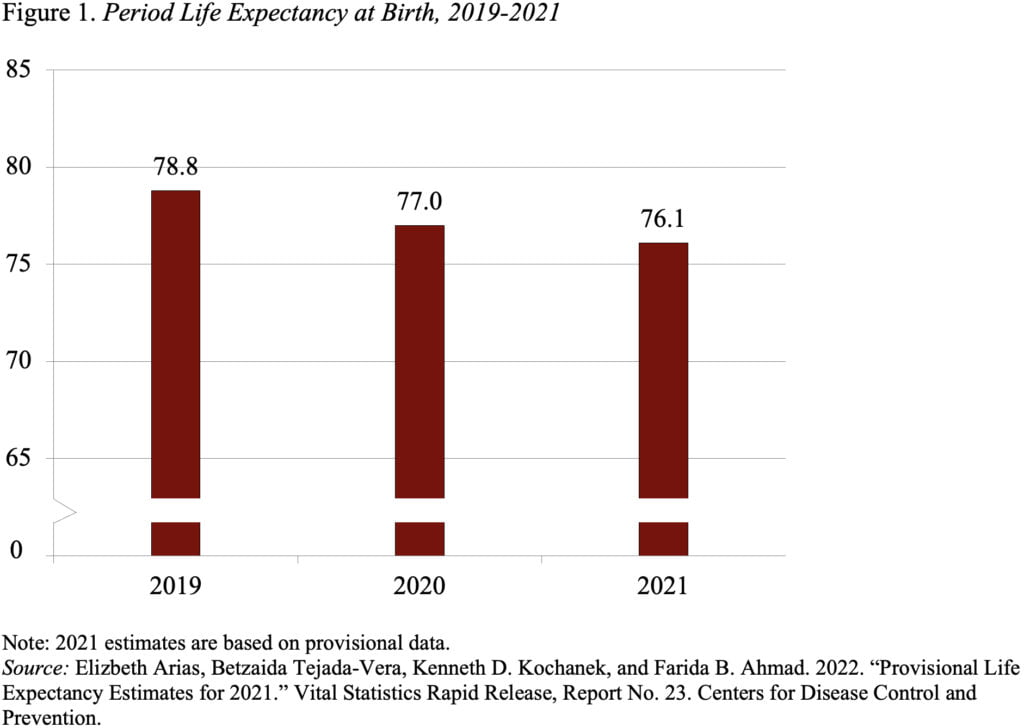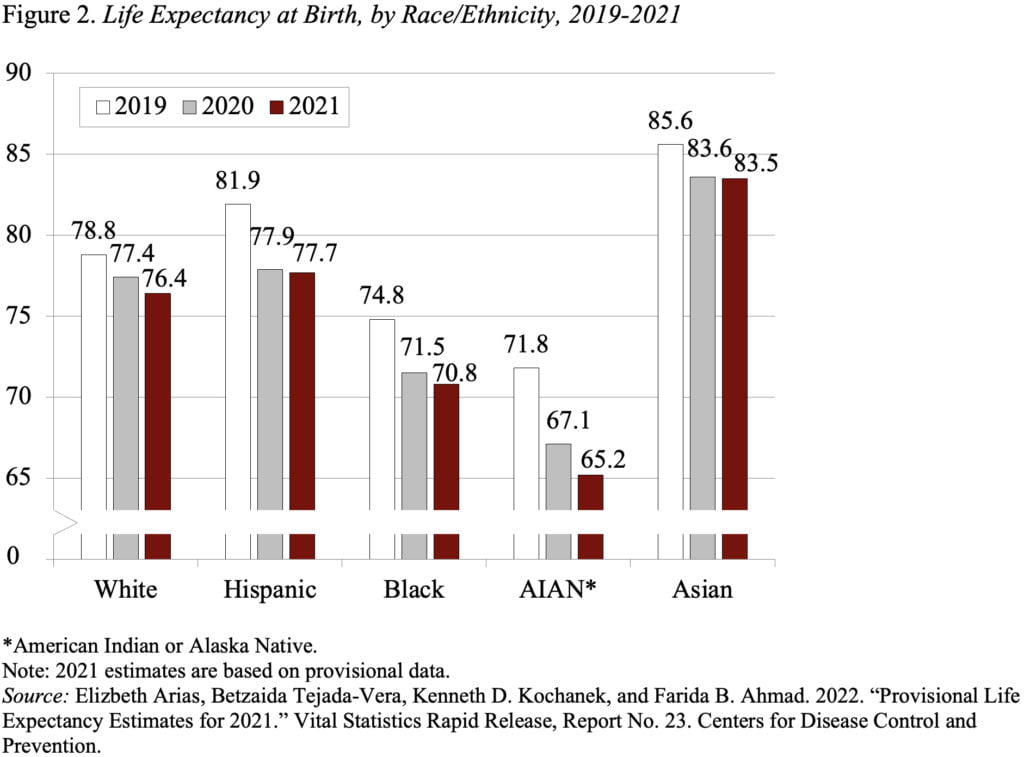
Impact of COVID-19 on Life Expectancy Is Misleading
Alicia H. Munnell is a columnist for MarketWatch and senior advisor of the Center for Retirement Research at Boston College.
Babies born in 2023 should live as long as babies born in 2019.
The Centers for Disease Control and Prevention (CDC) recently reported that life expectancy had dropped sharply in 2020 and 2021 largely because of COVID-19. The story was picked up by every media outlet. The reports made it sound like the world is ending, but what does it really mean for newborns? The reports made it sound like the world is ending, but what does it really mean for newborns? My expectation is that, assuming COVID does not flare up again, the CDC life expectancy in 2023 may be close to the 2019 number.
To measure life expectancy, the CDC uses the concept of period life. This statistic assumes that a baby born in 2019 will live its entire life, from birth to death, under the mortality conditions of 2019. That is, the baby will grow up in a non-COVID world. Based on this concept, life expectancy at birth in 2019 for Americans was 78.8 years (see Figure 1).

Then COVID hit in 2020, and since then more than 1,000,000 people have died from the disease. As a result, death rates observed in 2020 and 2021 were considerably higher than in 2019. Period life expectancy is calculated on the assumption that babies born in 2020 and 2021 will live their entire lives with the elevated death rates that occurred in those years. That is, the pandemic is experienced each year over and over again as the baby ages. Based on this assumption, the CDC estimates that period life expectancy dropped to 77.0 in 2020 and 76.1 in 2021.
A two-year decline in life expectancy of 2.7 years is truly unprecedented. And the declines by race are even more dramatic. As shown in Figure 2, while period life expectancy at birth fell by 2.4 years for whites, the drop for Hispanics was 4.2 years, for Blacks 4.0 years, and for Native Americans 6.6 years. These demographic differences are important in that they reflect the toll COVID has taken on various demographic groups.

But period life expectancy tells us little about how long newborns will live. They will not be affected by COVID mortality rates throughout their lives. Assuming that we defeat COVID in 2022, and if nothing else were going on, the death rates in 2023 shouldn’t be very different from those in 2019. (Ignore for this discussion that other things are going on. Most importantly, “deaths of despair” – deaths from opioids, alcohol, and suicides have been putting downward pressure on life expectancy since 2014.)
The point of this discussion is not to minimize the tragedy caused by COVID-19 overall and its unequal effect by race, but rather to argue that talking about changes in life expectancy due to COVID doesn’t make sense. The news reports are misleading: life expectancy has not been permanently reduced.






